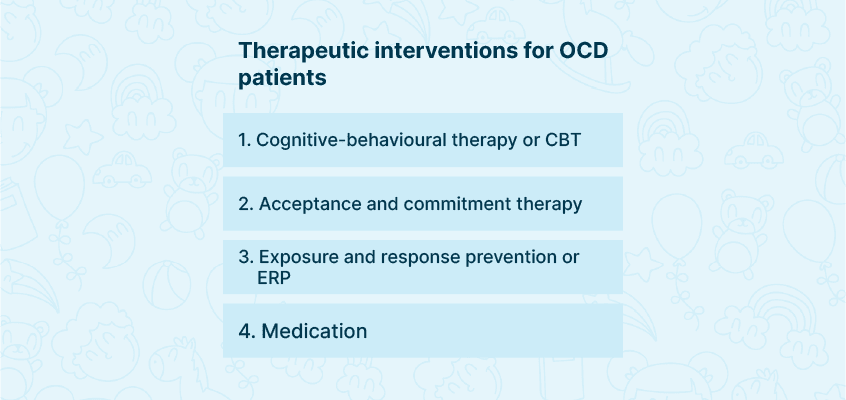Introduction
Psychological stress causes behavioural disorders like OCD, which causes unwanted and uncontrollable thoughts and images, leading to a fear of losing. These obsessive, compulsive, repetitive thoughts become intrusive and significantly interfere with daily life. They impair the ability to function normally. Treatment can assist the affected individual in managing the symptoms.
Our Wellness Programs
What is the fear of losing control?
Fear is a familiar feeling associated with stress and anxiety. The person feels that he has no control over his actions or thoughts and may endanger others or themselves. These sudden fearful thoughts are out of the individual’s typical characteristics. They tend to act upon impulses that they can’t control.
People who are anxious or fearful of losing can develop signs of compulsions to control events and be sure about results.
Examples:
- Post-delivery, a woman may be afraid that she may lose control and throw her baby away.
- A person who fears flying may choose to drive cross-country rather than availing of a short flight. The fear can range from a plane crash to plane hijacks or a fear that they might experience cardiac arrest while flying. The range of fear is vast.
Looking for services related to this subject? Get in touch with these experts today!!
Experts

Kirti Bajpai

India
Psychologist
Experience: 5 years

Neelam Parwani

India
Life Coach
Experience: 5 years

Mansi Chawla

India
Psychologist
Experience: 12 years
What are OCD and intrusive thoughts?
Obsessive-compulsive disorder (OCD) is a medical condition resulting from a combination of obsessive thoughts and compulsive behaviour. Ideas that are intense and intrusive tend to recur and become compulsive.
Examples of OCD include
- The sudden thought to go back into a room and check whether they have unplugged their mobile chargers repetitively;
- Fear of becoming ill as a result of being contaminated by germs. Washing hands at least 20 times per day;
- Excessive compulsive thoughts sometimes double-check, such as repeatedly calling to check on the safety of loved ones.
Intrusive thoughts are those thoughts that are unwanted, unpleasant, and uninvited. These are not in one’s control and keep appearing in mind. It interferes with the ability to carry on regular day-to-day activities. These thoughts can sometimes become obsessive, and the individual acts compulsively. For example, the thought of killing someone may result in hiding knives in the cupboard and locking them.
How do the fear of losing control, OCD, and Intrusive thoughts stem develop?
- The fear of losing control is a symptom or thought of losing control of oneself and is felt in one’s mind. These thoughts can become repetitive and obsessive. Such obsessive thoughts cause OCD. Intrusive thoughts can occur for any reason, including increased stress, trauma, depression, or anxiety. For example, in a woman after the birth of a child.
- Fears and obsessive thoughts result in compulsive behaviour, leading to obsessive-compulsive disorder. For example, A person may check the stove 20 times to ensure it’s genuinely turned off as he is afraid of burning down his house.
- Thoughts occur to everyone. If these thoughts become more frequent and difficult to ignore, a medical condition may develop. Underlying unconscious anxiety can cause Intrusive thoughts in which a person imagines harming a loved one or doing something they have no control over.
Fear of losing control, OCD, and intrusive thoughts due to childhood issues
Obsessive-Compulsive Disorder (OCD) is a brain disorder common in children. And research has proven that OCD is also a hereditary disease. The primary characteristic of OCD is obsessive thoughts, leading to extreme anxiety. To alleviate this anxiety, the child engages in compulsive behaviours such as adjusting the study chair at a particular angle or leaving the door slightly open at all times. The thoughts are repetitive. For example, “something bad will happen, it will be my fault, and I should do everything in my power to prevent it from happening.”
Physical and sexual abuse, family disruption, and neglect can exacerbate OCD symptoms. When exposed to stressful situations, they are more likely to develop obsessions. Children dealing with recurring, persistent, intrusive thoughts may find it difficult to dismiss them. In these cases, a child suffers from a mental health issue that requires treatment. OCD and PTSD may be the root causes of such problems.
Fear of losing control, OCD, and intrusive thoughts due to Trauma
In most instances, traumatic incidents cause post-traumatic stress disorder (PTSD) and OCD. Psychological stress causes intrusive thoughts. PTSD is a mental disorder that occurs after a traumatic event. When someone has post-traumatic stress disorder, they may experience intrusive thoughts about the possibility that caused it. OCD can also arise independently of PTSD. Symptoms vary depending on the situation, including being involved in an accident or natural disaster, being raped, the sudden death of a loved one or going through a significant life event such as divorce.
Clinically, it may manifest as depression, anger, or aggressive beta behaviours brain is hardwired and reminds repetitively of a traumatic incident. These reminders, also known as flashbacks, may take the form of sounds or images and may experience the same physical symptoms as happened at the time of actual trauma. The individual may isolate or take safety precautions to prevent any consequences happening from intrusive thoughts.
How to deal with the fear of losing control, OCD, and intrusive thoughts?
An individual does not have any control over their thoughts.
- The concise answer is to deal with it. Just ignore.
- Stop giving them meaning; stop attempting to push them away.
- Allow them to exist in the head without paying attention to them.
- Retrain the brain by acting differently in response to those thoughts.
- Observe the thoughts without engaging with them, much like passing traffic on the road or twigs and things floating down a river.
- Take note of them and simply allow them to be there before allowing them to pass.
Therapeutic interventions that are known to be adequate to help people manage these symptoms include
- Cognitive-behavioural therapy or CBT: The thoughts change the following behaviour.
- Acceptance and commitment therapy
- Exposure and response prevention or ERP: Delay or resist ritual compulsion and cope with anxiety. Over time, the pressure becomes less disruptive.
- Medication – SSRIs (Selective Serotonin Reuptake Inhibitors)
Conclusion
There is no one straightforward way to deal with this. It’s part of the human condition, so the best way out is to learn to live with it instead of trying to push it out, which can turn into a lot of more significant issues. A person suffering from fear of losing control and OCD should consult a doctor. Doctors can offer a diagnosis and treatment recommendations to help them get back on track. Contact us today!


















